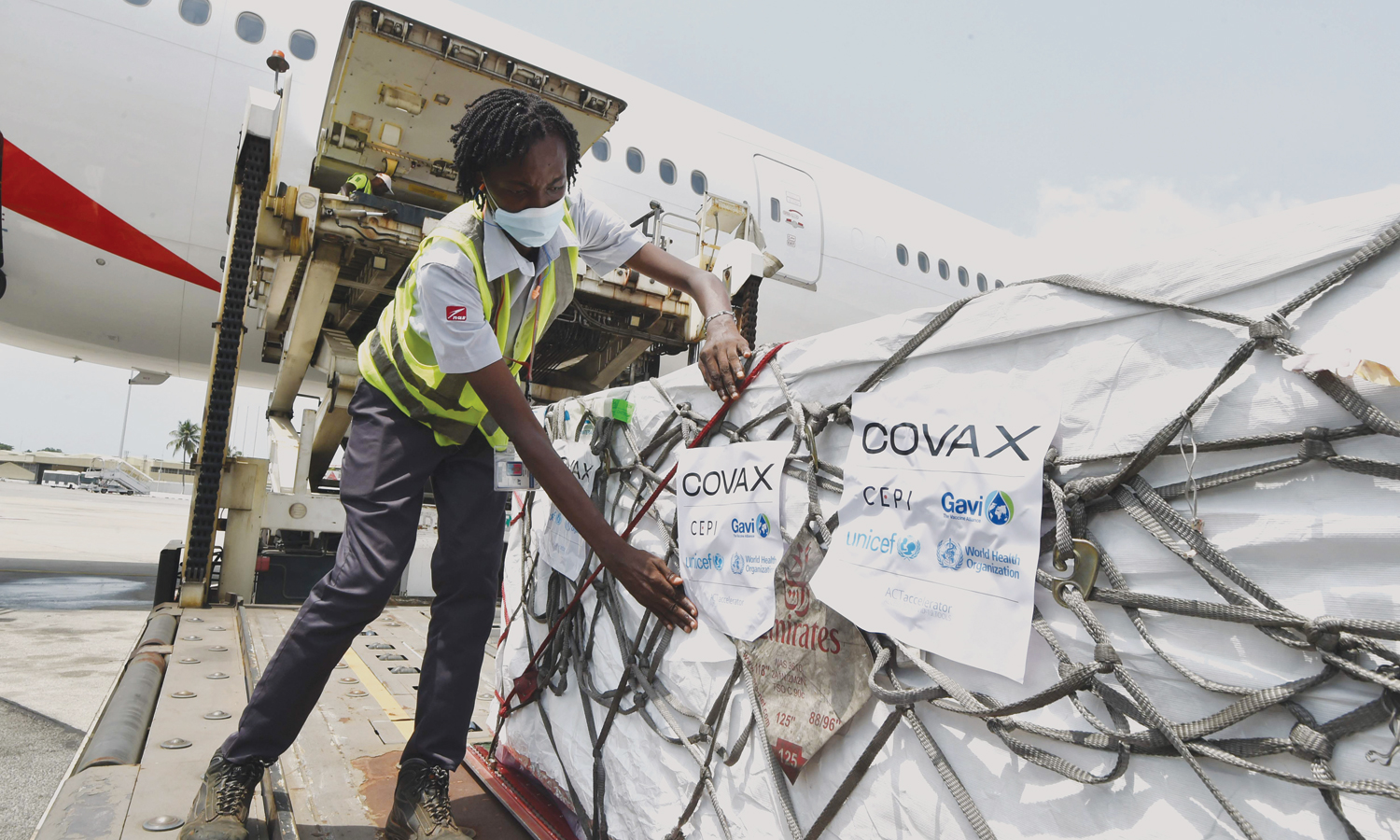

ACCRA: Ghana’s President Nana Akufo-Addo on Monday became the first recipient of a coronavirus vaccine under the global Covax scheme, as US health workers prepared to distribute nearly four million doses of the single-shot Johnson & Johnson jab.
Covax, a scheme designed to ensure that poorer countries do not miss out on Covid-19 vaccines that have so far been largely hoovered up by rich nations, is aiming to deliver at least two billion doses by the end of the year.
Akufo-Addo received his AstraZeneca shot live on television along with his wife, a day before the rest of the first batch of 600,000 Covax doses are deployed across Ghana.
“It is important that I set the example that this vaccine is safe by being the first to have it, so that everybody in
Ghana can feel comfortable about taking this vaccine,” the president said.
In the United States, 3.9 million doses of the Johnson & Johnson vaccine are due to be delivered after it became the latest jab to get the green light from US regulators.
The J&J rollout comes as a boost to President Joe Biden’s plan to beat back a virus that has killed more than half a million Americans, making the US the world’s worst-hit nation.
LEGAL WAR OVER JABS
Vaccines are seen as crucial to returning the world to normality and healing the economy after a pandemic that has claimed more than 2.5 million lives across the globe.
More than 224 million vaccine doses have been administered worldwide, according to national data compiled by AFP, with the Philippines among the latest countries to launch a rollout on Monday.
But rich countries have bought up the vast majority of those available, prompting the World Health Organization (WHO) to warn that the crisis
cannot end unless poor countries can vaccinate their populations too.
A new row is brewing over a call, led by India and South Africa, for intellectual property rights to the vaccines to be waived.
Backed by dozens of governments from Argentina to Bangladesh, they argue that this would boost production and ultimately bring the pandemic to a swifter end.
But the United States, the European Union and Switzerland — home to major pharmaceutical firms — oppose the idea, which is being thrashed out at a World Trade Organization meeting on Monday and Tuesday.
Some countries are now cautiously lifting strict curbs on daily life as infection rates stabilise, with Germans rushing to hairdressers on Monday as salons reopened.
“It’s such a relief. I couldn’t bear to look at myself in the mirror before!” Hans-Joachim Berthold, a 64-year-old Berliner, said after his first cut in two and a half months. — AFP
Oman Observer is now on the WhatsApp channel. Click here



